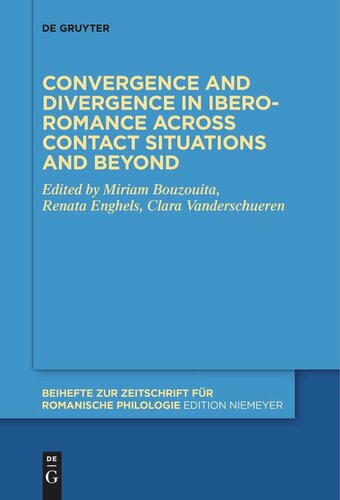

Most ebook files are in PDF format, so you can easily read them using various software such as Foxit Reader or directly on the Google Chrome browser.
Some ebook files are released by publishers in other formats such as .awz, .mobi, .epub, .fb2, etc. You may need to install specific software to read these formats on mobile/PC, such as Calibre.
Please read the tutorial at this link: https://ebookbell.com/faq
We offer FREE conversion to the popular formats you request; however, this may take some time. Therefore, right after payment, please email us, and we will try to provide the service as quickly as possible.
For some exceptional file formats or broken links (if any), please refrain from opening any disputes. Instead, email us first, and we will try to assist within a maximum of 6 hours.
EbookBell Team

0.0
0 reviewsThis book aims to provide a better understanding of convergence and non-convergence phenomena, such as divergence, from different theoretical perspectives. It brings together nine case studies that deal with contact between languages found in the Iberian Peninsula (Castilian, Catalan, Portuguese and Basque), between Spanish or Portuguese and another language (such as English), and between different varieties from Europe and other continents. The volume thus unites views from two fields that rarely interact: contact linguistics and dialectology. It discusses the mechanisms and consequences of language contact within the Ibero-Romance world, a geographical space characterised by a high rate of multilingual speakers and settings. The contributions deal with various combinations of convergence and divergence, for example between different varieties of the same language, language stability despite contact, as well as less studied aspects, such as the relation between language contact and second language acquisition, the linguistic landscape perspective of language contact, and divergence in linguistic identity construction.